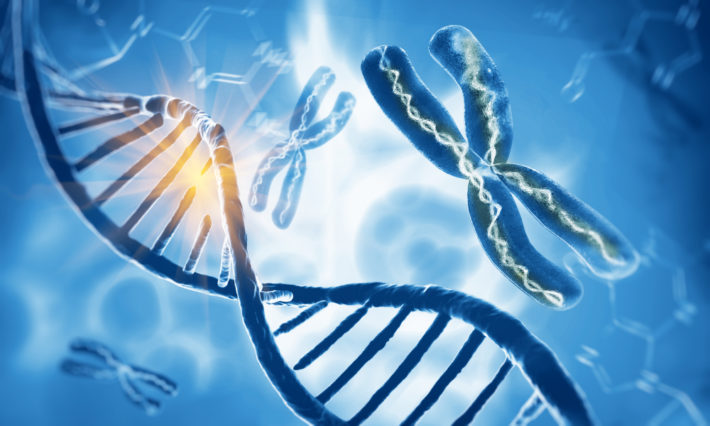
You know it’s coming; the “M” word!
Yup, menopause happens to everyone who lives long enough.
But when???
- How long will my periods last?
- How long can I wait to have my kids before it’s too late?
- Aren’t I too young for menopause?
Although most women enter menopause between the ages of 45-55, up to 10% are menopausal before age 45 and 1% will enter menopause before age 40. For others it happens at age 60. We know your mom’s age at menopause is a good predictor of when you should expect menopause. Is that because it’s coded into your genes?
Scientists came a little closer to answering that question with a major publication in the journal Nature.
According to the research, the timing of menopause is influenced by two things: 1. the environment and 2. genetics.
We’ll leave the environmental contributors for another article, and focus on what the scientists found out about genes and menopause.
The scientists uncovered nearly 300 genetic loci that are linked to natural menopause.
An example is a premutation in FMR1 that would cause a woman to go into menopause before age 40. Premutations are changes in a gene that occur before a mutation actually happens. Damage to these genes causes the ovary to age faster, and menopause to happen sooner. It’s probably why women who smoke enter menopause earlier than those who do not smoke. Cigarette smoke likely damages some of those genetic loci.
What is fascinating about this study is that the scientists believe their work will lead to several major outcomes:
- Understanding when menopause will occur naturally for a given person
- Extending the time that menopause occurs so a woman, for instance, might avoid going into early menopause
- Extending the time that a woman could remain fertile so she would have longer to have a baby
One of the senior authors, Anna Murray from the University of Exeter was quoted as saying, “The principle aim of our study was to improve our understanding of the biological processes involved in female reproductive aging, which has been a difficult area of study.”
The researchers studied the genes of 201,323 women of European ancestry, and found 290 loci associated with age at natural menopause.
These genes, they believe, could impact when menopause occurs from a few weeks to more than three years. And even though 290 is a lot of genes, the researchers believe it represents only about a third of the genetic variation in age at menopause, and about 12.5 percent of the overall variation. The researchers also found that different groups, such as women of Asian and East Asian ancestry, had different frequencies of these genetic variations.
What is exciting about this research is that knowing when you are going into menopause will empower you to take a bit more control over your work and family planning, and that will be empowering. The authors believe that predicting you are at risk for early menopause may be possible in the not too distant future.
And then what???
Imagine being able to alter slightly the way these genes work for a short period of time and avoiding infertility treatments, or being able to anticipate early menopause so you can prepare for some of the associated risks such as an increased risk of diabetes, osteoporosis, and depression. This study is clearly only the beginning of what will be possible in the not too distant future.
Curious how much your menopause symptoms are affecting you? Take this one-minute MenopauseQuiz.com.



